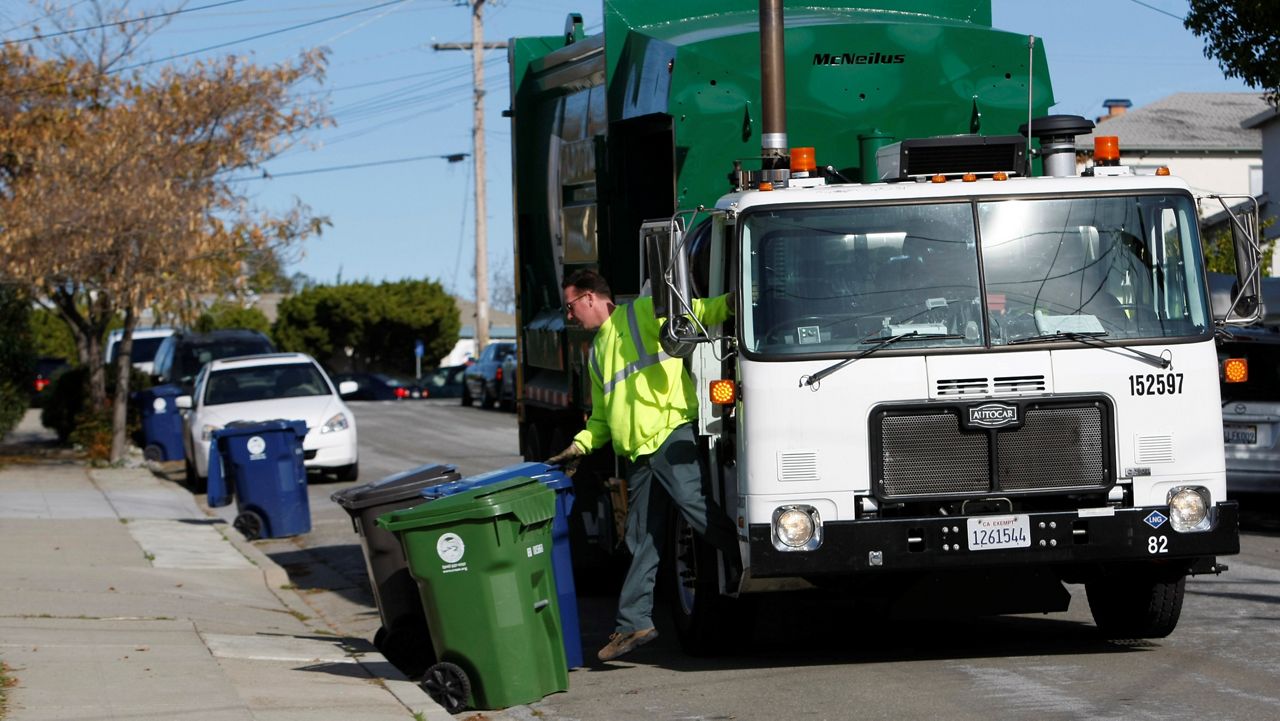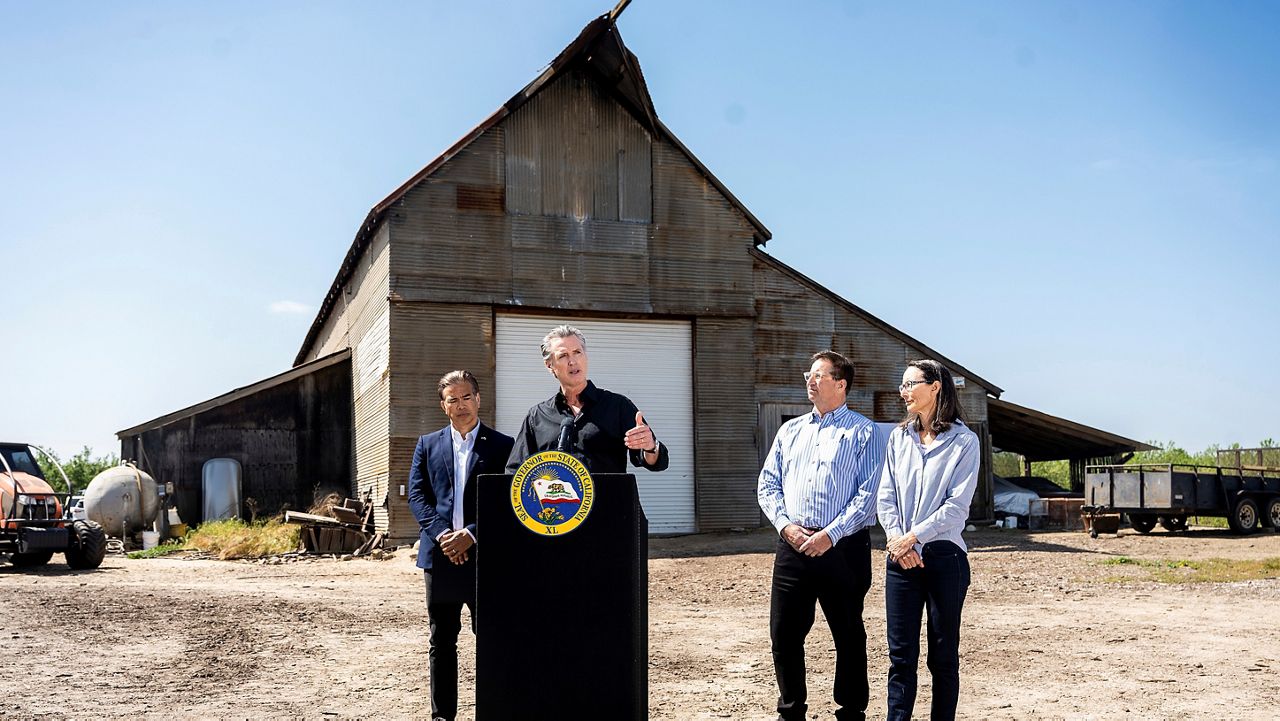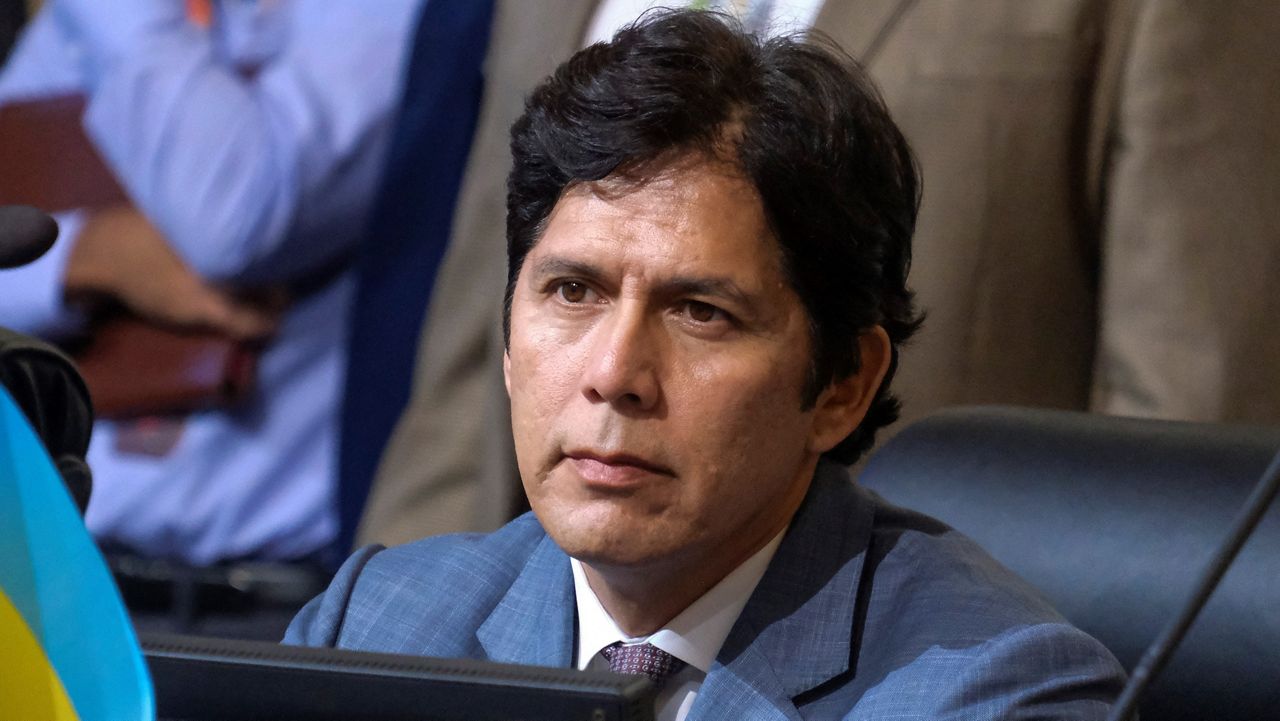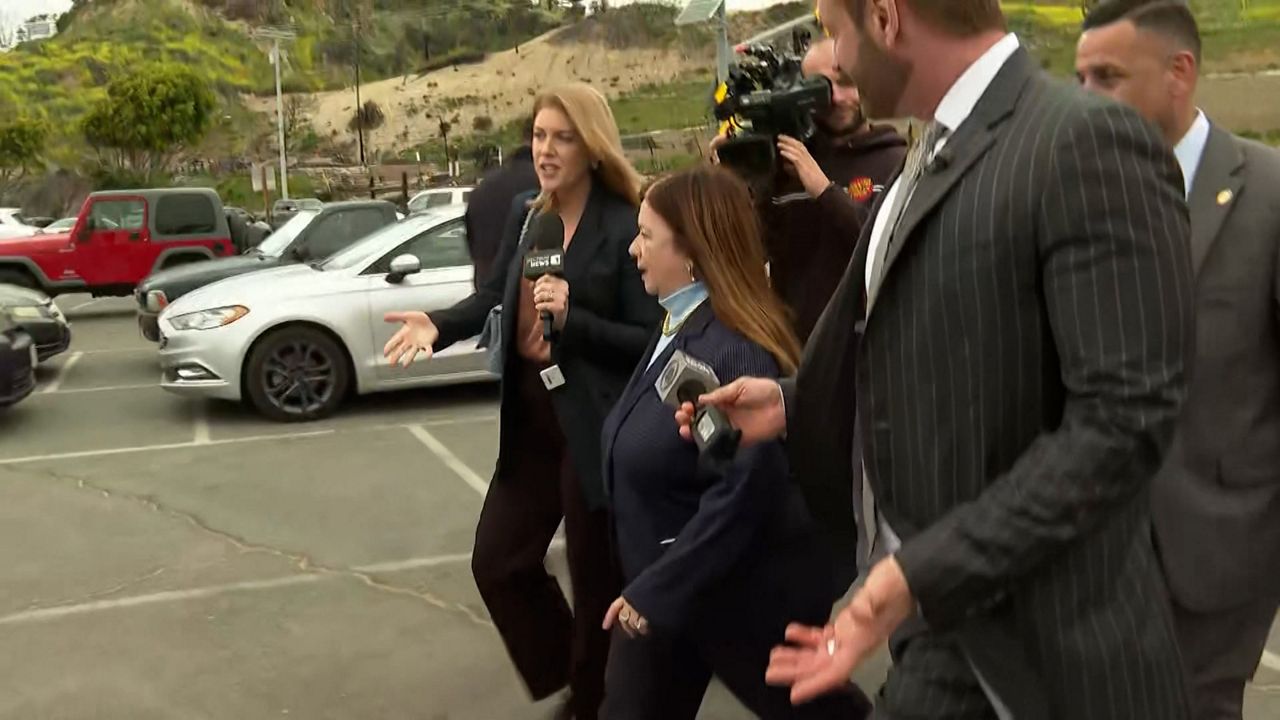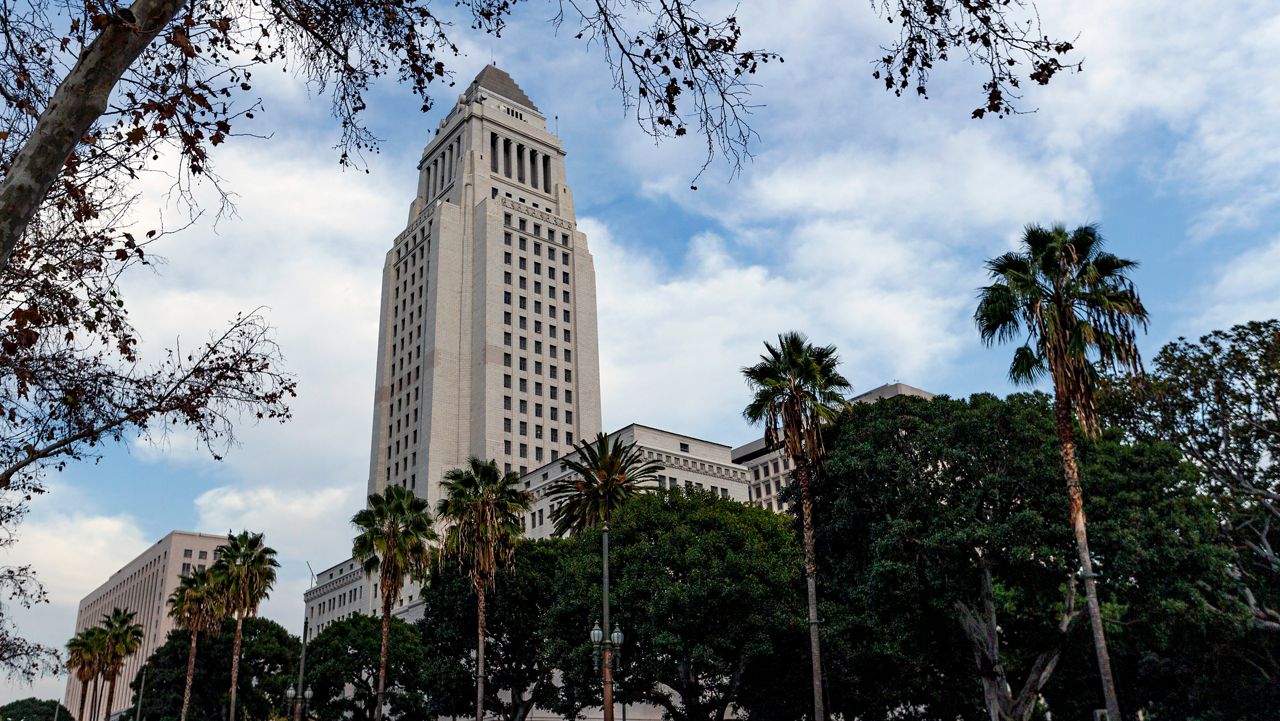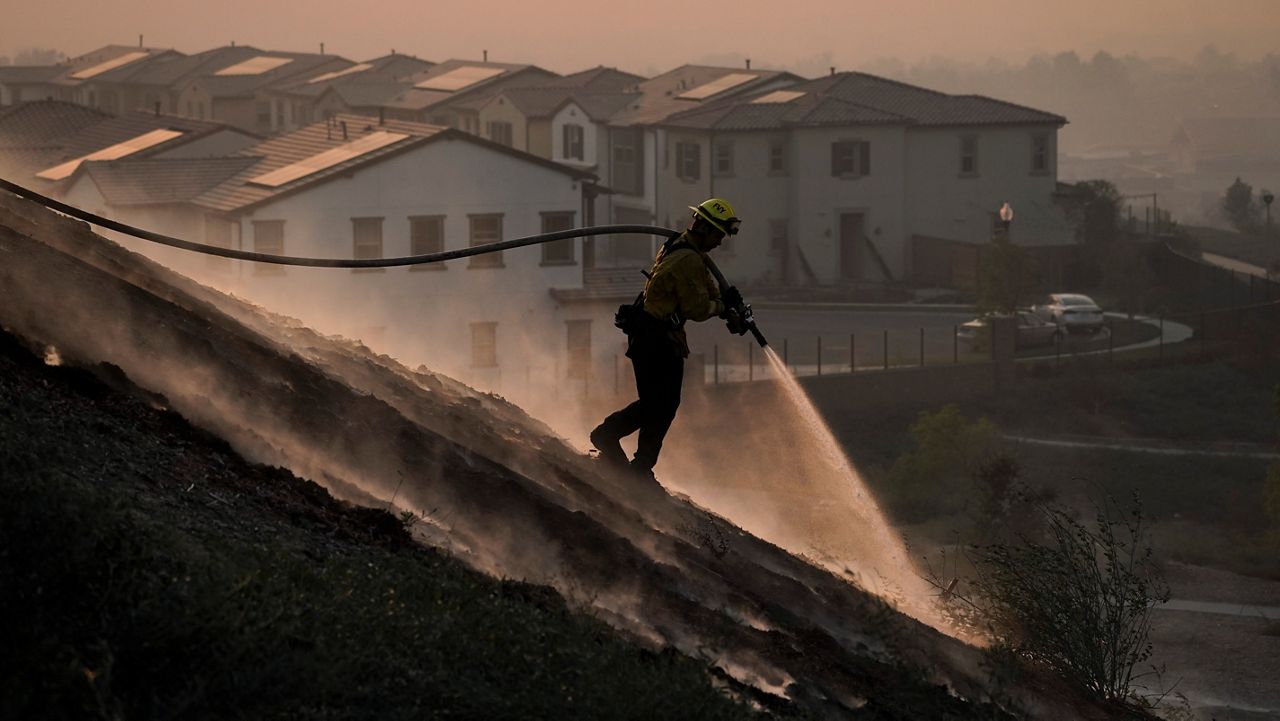LOS ANGELES — The City Council Friday approved a plan to increase trash collection fees, the first rate adjustment in 17 years, as part of an attempt to close a nearly $1 billion budget shortfall.
In a 10-1 vote, the City Council authorized the Bureau of Sanitation to begin the process under Proposition 218, with the goal of updating fees for its trash collection service, formally known as the Solid Resources Program. City officials still need to adopt an ordinance in order to effectuate the rate adjustment, among other requirements.
What You Need To Know
- The city contracted HF&H Consultants for a fee study. The rate adjustments were a result of their findings
- Council members John Lee, Imelda Padilla, Traci Park and Monica Rodriguez were absent during the vote
- The rate adjustment is subject to Proposition 218, requiring two public hearings for impacted property owners
- Barbara Romero, general manager of the Bureau of Sanitation, also known as LA Sanitation and Environment or LASAN, said the program has operated at a loss that requires a subsidy from the general fund
Council members John Lee, Imelda Padilla, Traci Park and Monica Rodriguez were absent during the vote.
"I know this is a tough thing to do for the city of Los Angeles," Councilwoman Nithya Raman said. "But, I think all of us can take pride in at least knowing that we are willing to take tough decisions when they need to be taken unlike what happened in the past."
Council President Marqueece Harris-Dawson acknowledged that he was a member of City Council when they decided to "kick the can" the last time on this proposal. He added, "And every time we kick the can, it gets hard to do. We now have our backs up against the wall as a city and as a council."
The Bureau of Sanitation requested to raise the monthly fee for single-family homes and duplex buildings from $36.32 to $55.94, a 54% increase. The rate for apartments with three to four units would go from $24.33 per month to $55.94, a 130% increase.
Customers' bi-monthly bill from the Department of Water and Power could jump to $111.90 if the rate adjustment moves forward. City officials aim to begin the fee increase Jan. 1, 2026. DWP only provides billing services while sanitation establishes fees for trash collection and sewage services.
The rate adjustment would add another 18% increase over the next four fiscal years, reaching $65.93 a month by the 2029-30 fiscal year for single- family homes, duplex buildings and small apartment buildings. Rate adjustments would impact approximately 743,000 households, and another 474,000 residencies that receive bulky item collection services.
The bureau would also increase fees for extra bins in 2026 to the following, which would increase further each subsequent year:
- Refuse containers (60 gallons) would increase from $10 to $15.65;
- Recycling containers (90 gallons) would increase from $0 to $11.24;
- Organics containers (90 gallons) would increase from $7.50 to $16.28; and
- Manure containers (60 gallons) would increase from $10 to 23.81
Currently, apartment buildings with five and more units pay full price.
Barbara Romero, general manager of the Bureau of Sanitation, also known as LA Sanitation and Environment or LASAN, said the program has operated at a loss that requires a subsidy from the general fund. She also cited inflation, expenditures such as staff salaries, maintaining vehicles and equipment, as well as overhead costs for the rate adjustment.
It's also necessary to reduce and ultimately end a general fund subsidy for the program, which is expected to cost $555 million in FY 2025-26.
"The $36.32 fee has sustained the program until fiscal year 2020-21, when it was first subsidized by the general fund by $3.9 million. That subsidy has grown to over $200 million in five years," Romero said.
In 2024, the subsidy was $134.4 million, an increase of $89 million to nearly $230 million in 2025.
It would also help the city comply with SB 1383, which requires that 75% of organic waste be diverted from landfills. In 2023, the city began its Organics Recycling Program to divert organic food scrapes and food-soiled paper products from landfills by placing such waste into green containers.
The program collected a daily average of 720 tons of recyclables, 1,610 tons of organic waste, 15 tons of manure and 3,910 tons of residual waste in the 2023-24 fiscal year.
In 2008, organics cost $40/ton, which jumped to $122/ton in 2025. The annual cost of organics recycling is approximately $66 million. Recycling went from producing $6 million in revenue to costing $19 million in 2025, sanitation officials reported. New trucks cost $246K in 2008, and now cost $500K, a 103% increase in cost per truck.
LASAN has a fleet of 720 heavy-duty vehicles to drive around collecting trash from the San Fernando Valley, West Los Angeles, North Central, South Los Angeles and Harbor Area.
The city contracted HF&H Consultants for a fee study. The rate adjustments were a result of their findings.
Councilwoman Eunisses Hernandez, chair of the Public Works Committee, said the issue was about equity.
"In order to pay for this program these past several years, the city has relied on the general fund to cover the gap and keep the program afloat," Hernandez said. "That means every taxpayer has been subsidizing a program that primarily serves just a portion of Angelenos."
Councilman Adrin Nazarian, who cast the lone "no" vote, criticized the speed at which the proposal advanced. The councilman also noted he will be working on reforming the process for such rate hikes.
"This should have required more work and, at the very least, had better data," Nazarian said. "I look forward to working with all of you to make sure that we get it right for the future and not be rushed into doing something because of our failure in not taking steps before."
The new rates would put the city in line with neighboring cities such as Burbank, Culver City, Long Beach, and Santa Monica — but still be on the lower end.
The Bureau of Sanitation would be expected to start an expansive outreach campaign with webinars, advertisements and pop-up events. Ballots would also be mailed to impacted residents later in the process.
Jack Humphreville, a member of the Neighborhood Council Budget Advocates, a watchdog organization, in an interview with City News Service criticized the city's plan, adding "It's just one thing after another."
"The problem is that they haven't given us any of the background information," Humphreville told CNS. "So, for example, why did the subsidy from the general fund to the Solid Resources Program go from $75 million to $225 million over a two-year period? That's a three-time increase. We don't have any financial information. We don't have any income statements. We don't have any balance sheets. How much debt do they have? There's nothing about the efficiency of their operations."
The rate adjustment is subject to Proposition 218, requiring two public hearings for impacted property owners.
Proposition 218 is a constitutional amendment that limits the methods by which local governments can levy taxes, fees and charges without taxpayer consent.
According to Jon Coupal, president of the Howard Jarvis Taxpayer Association, which sponsored Prop 218 in 1996, the law has a "cost of service" requirement which restricts both the use of the funds as well as the amount of the fee for each property owner or fee payer.
Local governments must also mail information regarding the proposed fee to every property owner, have a hearing at least 45 days after the mailing and reject the proposed fee if written protests are presented by a majority of the affected property owners.
"We will be watching the city to ensure compliance with both the substantive and procedural mandates of Prop 218," Coupal added.
The city's plan to raise trash fees comes at a time when they face a nearly $1 billion deficit and are contemplating thousands of layoffs. Mayor Karen Bass is scheduled to release her proposed budget on April 21.
"LA's mayor and City Council have mismanaged the city into a nearly $1 billion budget deficit through overspending, including recklessly agreeing to unaffordable labor contracts and through policies that have driven businesses out of the city, resulting in lower business tax and sales tax revenue," the Howard Jarvis Taxpayers Association said in a statement. "The mayor and City Council may want taxpayers to bail out Los Angeles, but it's more likely that taxpayers will bail out of Los Angeles."




